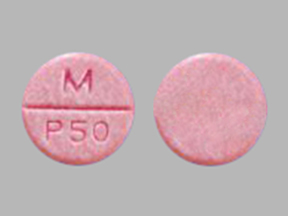
Dilantin Infatabs Coupons & Savings Card – Discount Prices from $8.70
Brand for: Phenytoin
My prescription
Edit
50MG, Phenytoin (30 Tablet Chewables)
Select pharmacy

CVS
$21.03
COUPON PRICE
Walgreens
$8.70
COUPON PRICE
Walmart
$8.73
COUPON PRICE
Albertsons
$11.74
COUPON PRICEDilantin Infatabs savings card
Show this card to your pharmacist
Walgreens
$8.70
BIN
ID
PCN
GRP
011867
LH90B00B05
HT
LABH001
Powered by
More prescriptions for epilepsy
More prescriptions for epilepsy
Price history for Dilantin Infatabs (brand) & Phenytoin (generic)
30 Tablet Chewables, 50MG
Average retail price for Dilantin Infatabs
Average retail price for Phenytoin
Average SaveHealth price for Phenytoin
Our price history data is based on aggregated prescription data collected from participating pharmacies in America. Our prescription data updates daily to reflect the latest price changes. If you notice a missing data point, it means there wasn't sufficient data available to generate a monetary value for that date.
Over the last 12 months, the average discount price of Dilantin Infatabs is $18.95 using the SaveHealth savings card. That's an average savings of 71.71% on Dilantin Infatabs with our discount card.
*Retail prices are based on pharmacy claims data, and may not be accurate when we don't have enough claims.
Dilantin Infatabs (Phenytoin) dosage forms
Dosage Quantity Price from Per unit 50MG 30 Tablet Chewables $8.73 $0.29 50MG 1 Tablet Chewable $2.71 $2.71 50MG 60 Tablet Chewables $14.96 $0.25 50MG 100 Tablet Chewables $23.26 $0.23
| Dosage | Quantity | Price from | Per unit |
|---|---|---|---|
| 50MG | 30 Tablet Chewables | $8.73 | $0.29 |
| 50MG | 1 Tablet Chewable | $2.71 | $2.71 |
| 50MG | 60 Tablet Chewables | $14.96 | $0.25 |
| 50MG | 100 Tablet Chewables | $23.26 | $0.23 |
What class of drug is Dilantin Infatabs?
Dilantin Infatabs belong to the class of drugs known as anticonvulsants or antiepileptic drugs.
What is the drug Dilantin used for?
Dilantin is used primarily to control seizures in the treatment of epilepsy. It helps to stabilize electrical activity in the brain and is often prescribed to prevent tonic-clonic seizures and partial seizures.
Is Dilantin infatab chewable?
Yes, Dilantin Infatabs are chewable tablets.
Is Dilantin a mood stabilizer?
Dilantin is not classified as a mood stabilizer. It is an anticonvulsant medication primarily used to control seizures in individuals with epilepsy.
What is the brand name for phenytoin chewable?
The brand name for phenytoin chewable is Dilantin Infatabs.
